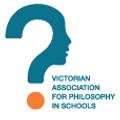Philosophy in Schools Readings

Arie Kizel - The facilitator as liberator and enabler: ethical responsibility in communities of philosophical inquiry
From its inception, philosophy for/with children (P4wC) has sought to promote philosophical discussion with children based on the latter’s own questions and a pedagogic method designed to encourage critical, creative, and caring thinking. Communities of inquiry can be plagued by power struggles prompted by diverse identities, however. These not always being highlighted in the literature or P4wC discourse, this article proposes a two-stage model for facilitators as part of their ethical responsibility. In the first phase, they should free themselves from assumptions and closed-mindedness. They should liberate themselves from pedagogy of fear and “banking education” in order to act freely in an educational space characterized by improvisation that cultivates participation of the children. Here, the text is based on normalizing education principles, counter-education and diasporic-education approaches in order to ensure openness and inclusiveness. In the second, they should embrace enabling-identity views and practices in order to make the community of inquiry as identity-broad and -rich as possible, recognizing and legitimizing the participants’ differences. Here, the text is based on principles such as recognizing power games as part of the community, ensuring multi-narratives human environment and enabling epistemic justice in order to ensure perspectival multiplicity, multiple identities, and the legitimization of difference characterized by pedagogy of search.
